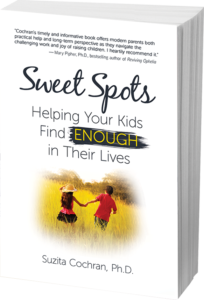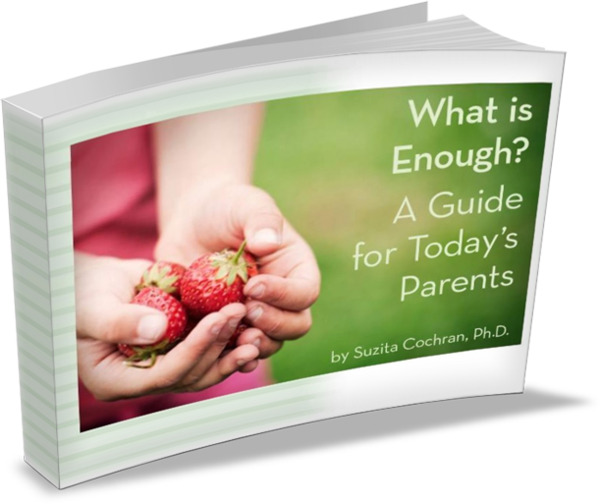 I dread the school Book Fair! Three times a year some company sends our elementary school a sort of “Book Fair in a box” which is set up in our library.
I dread the school Book Fair! Three times a year some company sends our elementary school a sort of “Book Fair in a box” which is set up in our library.
I realize these Book Fairs make money for our school and, for this reason I should buy from them. And because this Fair is paired with “Book” the implication is I’ll be a good parent if I take part. But I look around and wonder where the books without movie characters on their covers are. Somehow these Book Fairs put me and my kids in a bad mood!
While I love the idea of helping my children support their school, I’d rather buy good quality books from our local used book store and then donate them to our school library when we’ve finished reading them. I’ve diligently taught my kids to love used books over the years, and these frequent Book Fairs aren’t aiding me in this endeavor.
The Book Fair’s marketing has been well researched and funded by its sponsor company. Teachers are strongly encouraged to march their students to the Book Fair during school hours, armed with sheets of paper titled “Books I Want.”
My kids are no different than other kids. Creating a list of books they want sends them directly into an “I Want” mindset for the rest of the day. This “I Want” thinking, so regularly promoted in our children by countless marketers, dictates that they are lacking in some way and need to purchase something to feel better.
Thus, when we arrive home on these Book Fair days, we drop our numerous other responsibilities and get down to business turning this “I Want” world view back into an “I Have” outlook.
According to Robert Emmons, Ph.D., a researcher who studies gratitude at the University of CA at Davis, and author of Thanks! How the New Science of Gratitude Can Make You Happier, practicing grateful thinking can lead to greater happiness because we learn to “want what we have.”
Emmons found that those who practice gratitude consistently by keeping a gratitude journal, also tend to exercise more regularly, get sick less, feel better about their lives as a whole, and express more optimism about the future.
He notes that grateful people are less likely to base their happiness on material possessions, are less envious of others, and are less likely to measure success in terms of material gains. In our family we’ve found feelings of gratitude always trump feelings of deprivation. These two emotions can’t coexist simultaneously.
A few years back, my friend Marsi mentioned that she routinely asks her kids three things they’re grateful for as she puts them to bed each night. Because the “unofficial parent advice network” is where I get some of my best ideas, I decided to test this at our house.
When my son, Stephen (then age 7), responded to the gratitude question with, “trees, animals that are wild, and Daddy’s fried catfish” on one of the first nights, a window opened into his young mind. I love that these words of gratitude are the last spoken of the day and float gently through the kids’ heads as they fall asleep.
Reading autobiographical series such as the Little House books by Laura Ingalls Wilder, and the Little Britches books by Ralph Moody about some childrens’ endurance and courage a century ago, has also given my kids more perspective on their young lives and fostered a sense of gratitude.
So on the next school Book Fair day when everyone’s feeling a little down, I think I’ll swing by the used book store or library on the way home and pick up one of these old favorites.

 Sweet Spots: Helping Your Kids Find ENOUGH in Their Lives.
Sweet Spots: Helping Your Kids Find ENOUGH in Their Lives.


Our greatest find with our 20 month old – the local library! She has to choose, then enjoy, then … hand it back for someone else to enjoy!
I love the idea of the last drifting thoughts before sleep being things for which you’re grateful.
I know what you mean about book fairs, (especially since half the stuff sold there aren’t books!), but I also struggle with choosing which battles to fight as far as swimming against the culture tide. Our family has decided that a book at the book fair falls into the gray zone and we let it go, but I do wish they wouldn’t do that wish list thing.
I remember that Christmas from the Little House books when Laura and Mary are thrilled when an extra drinking cup means they no longer have to share. 🙂
Great article! I look forward to more.
You’re not kidding; my kids do the same thing! The school book fair drives me crazy.
Oh how Fiona misses the Bookworm! Books here in NZ are like gold, and I have to admit we stocked up on Little House on the Prairie and Marguerite Henry (Misty of Chincoteague and other horse related) books from our favourite used book store when we last visited Boulder. Not only are they great books, they are such Americana, and I don’t want her to lose that link to her history. We’ve become such regulars at our local library in Nelson, that the librarians have several recommendations for her each time she visits.
Thanks for posting- it is good to hear your ‘voice’ from so far away!
We have not attended our book fair for two years!Instead, we sometimes donate books we have enjoyed to the library. The teachers send a “wish list” out which feels a little easier than an “I want” list in some ways.
Love your blog, can’t wait to read more!
Hi Suzita! Linda Kelsh sent me the link to your terrific blog! 314515!
I agree about the book fair! My kids think I am a cheapskate because I only give them $10 each and require that they purchase actual books. Going to the library does seem to be a lost art!
Keep up with the postings!
3 – 4 – 6 – au – revoir!
I love anything with books which includes yard sales, book stores, library and book fair. I feel like any money I spend, if it goes toward literacy and encouraging my children to read, it’s money well spent.
Melissa http://imaginationsoup.net
Our 4 year old is not yet into the book fair age, though I’m sure it’s coming. I remember loving book fairs as a child, but I never had a glimpse of the pressure they put on parents. These days, most of our books come from garage sales, though buying cheaply is still buying, and it would probably be a good idea to pare the quantity and focus more of what we already have.
Oh my goodness. I have just spent the last week fuming about the whole book fair thing. My husband and daughter have been so patient but their looks during my smoke-coming-out-of-my-ears moments about this had me questioning my sanity. Then I came upon your post. I had found your blog earlier this week and have kept it open, wanting to come back later to really dig into some of your posts. And now this? I burst out laughing and immediately called my husband in and read it to him. So I’m not alone in this? Phew!
My book fair tactic for the past two episodes has been to offer my daughter a choice. I tell her, “You can either choose one book from the book fair that mommy and daddy approve of or we can go to the used book store and buy a pile of books that we approve of for a 1/4 of the cost of anything we’d find at the book fair.” I’m a little concerned that I’m still falling into the consumerism trap a bit by encouraging her to get more for her money but oh well. At least we’re not at the book fair, surrounded by kids that have “that look” in their eye that scares me to no end.
So thank you for this post. I no longer feel alone. And I’m planning on printing out this post and sharing it with the school principal.
I do the same thing you do, reminding my kids how much more (quality-wise and quantity-wise) they can get from the used bookstore versus the book fair. One nice thing: our school has been putting on more used book fairs during the year in addition to the regular book fairs. The librarian asks families to bring in used children’s books and we sell what comes in for 50 cents or a dollar apiece. It’s worked well, actually. Sometimes if a book comes in that she needs for the library, she just pulls it aside. So it ends up supporting the library in a number of ways.
You really summed up the book fair experience. I HATE it. Esp. using instructional time to make the want lists. Our family is fortunate to have a choice in the matter, but when 80% qualify for free lunch, that 80% have lost instructional time to ‘learn to want’ what they (and the school) know they can’t have. Also, the amount of c.r.a.p. (toys, school supplies, junk) is more heavily consumed and marketed than actual books. I would rather teach my children to make wise spending choices and just write the school a check. Charity in the name of charity makes sense. Consumption in the name of charity is for the birds!